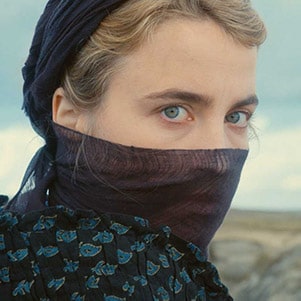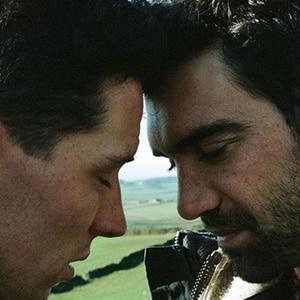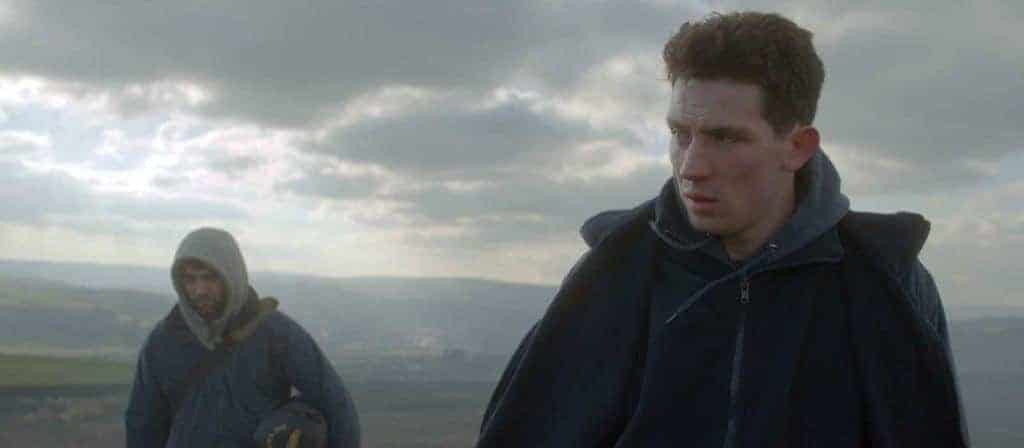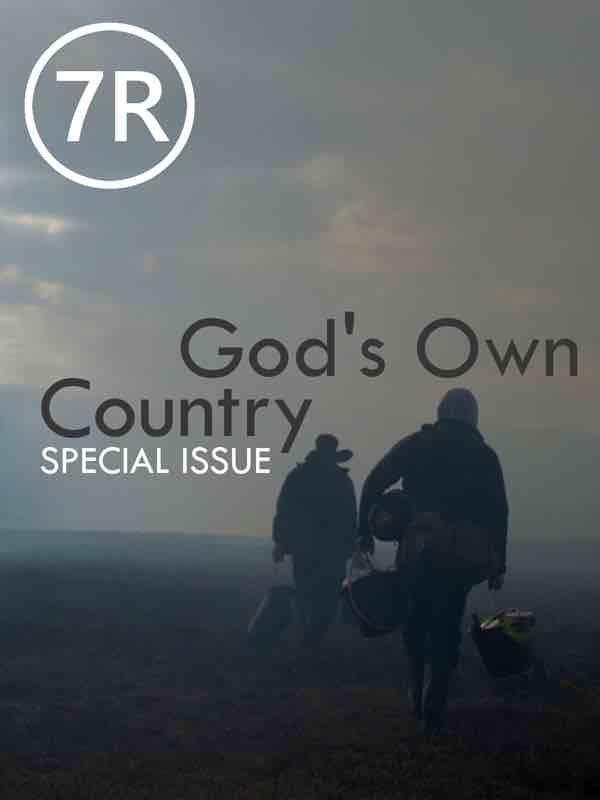In this interview on God’s Own Country, writer-director Francis Lee and stars Josh O’Connor and Alec Secareanu discuss the making of this touching story of first love. This is an excerpt from the ebook God’s Own Country: A Special Issue, which is available for purchase here.
At a Q&A interview for God’s Own Country at Sundance, a woman commented, “I’ve never seen intimacy depicted on screen like that before.” She wasn’t talking about the sex scenes — not entirely. In his directorial debut, Francis Lee, who won the World Dramatic Grand Jury Prize for Directing, has crafted a touching story of first love and economic hardship set in rural Yorkshire.
Josh O’Connor gives a superlative, emotionally layered performance as the film’s emotionally closed-off protagonist, a miserable twentysomething, prone to getting blackout drunk, who is unable to cope with the burden of running the family farm for his grandmother (Gemma Jones) and ailing father (Ian Hart). When a Romanian temporary farmhand Gheorghe (an excellent Alec Secareanu) arrives, their initially combative relationship gradually transforms into something more intimate.
At Sundance, I sat down with Lee and his two stars, O’Connor and Secareanu, for an interview to discuss the making of the film, the intensive rehearsal process, and how the film’s aesthetic keeps us immersed in the love story.
Seventh Row (7R): Where did the idea for the film come from?
Francis Lee: I grew up in Yorkshire, very close to where the film is set and shot. My dad is a sheep farmer in Yorkshire. I left Yorkshire when I was 20 to go to London to train as an actor. But in all that time, I always went back. I could never get that landscape out of my head. I started to think about what life might have been like if I’d have never left, if I’d have stayed in Yorkshire, and if I’d have met someone there that I liked. What would that have been like?
Preparing the actors for the shoot
7R: What was the process of preparing with the actors for their roles?
Francis Lee: I was really lucky. I cast both boys about three months before the actual rehearsals started. The way I like to work and the way in which the boys wanted to work was very similar. We started to build the characters first. We work out everything about them: who they are, what they want, what colour socks they like, if they take sugar in their tea, and all of the emotional points in their life that have formed them to the moment we meet them.
[clickToTweet tweet=”I also shot chronologically, as a device, as a process, to see the relationship on-screen develop.” quote=”I also shot chronologically, as a device, as a process, to see the relationship on-screen develop.”]
When the boys came to Yorkshire, the characters were already really well formed and strong. The rehearsal process in Yorkshire was basically getting both boys out and working on farms. They did everything with the sheep, the cows, the land. They built walls. I knew, in this film, I wanted them to do everything and have that complete authenticity. My dad’s a sheep farmer. I didn’t want him coming to look at it and saying, “That’s not right.”
I also shot chronologically. I wanted to use that as a device, as a process, to see the relationship on-screen develop.
Josh O’Connor: Once Francis first cast me, we went for lunch in London, on the Southbank. He pulled out this scrapbook with bits of material, poems, photographs, images, smells, sounds. It was like a sensory book. When he brought that out, it was a revelation for me. I do a similar thing for almost every role I’ve done before. It was finding someone who worked in a very similar way.
I did my own version of that. Me and Francis would talk on the phone and be like, “When was Johnny’s first sexual relation? Or, come up with a memory Johnny has with his father — maybe the happiest memory he has with his father.” It was so exciting.
When we got into the scenes with Alec, you were able to have emotional recall, have some sort of trigger: well, actually, in reality, if someone said that to me, knowing the memory that I’ve created with Francis, that’s going to have this emotional effect. I didn’t have to think that through. We’d done the work. It just happened.
Alec Secareanu: It was very helpful to know all the life of the character. When we started to rehearse, we knew exactly at what point in their life the characters were. More than this, when we were shooting, when we were on set, we really, all of us, knew what we had to do. It went very smoothly, natural, organic. Being truthful to our characters was very important.
To read the rest of the interview with Francis Lee, Josh O’Connor, and Alec Secareanu, purchase a copy of the ebook God’s Own Country: A Special Issue here.
This interview was originally published on an January 30, 2017.
Read the rest of our ebook on God’s Own Country here >>
Read more about great queer cinema…

Call Me by Your Name
Read Call Me by Your Name: A Special Issue, a collection of essays through which you can relive Luca Guadagnino’s swoon-worthy summer tale.

Portrait of a Lady on Fire
Read our ebook Portraits of resistance: The cinema of Céline Sciamma, the first book ever written about Sciamma.

God’s Own Country
Read God’s Own Country: A Special Issue, the ultimate ebook companion to this gorgeous love story.
Many directors we’ve talked to have emphasized the importance of shooting in the story’s chronological order. Dominic Cooke did so for On Chesil Beach and elicited amazing performances from his leads. Andrew Haigh always likes to shoot this way, and his films regularly produce some of the best performances of the year. For 45 Years, Charlotte Rampling and Tom Courtenay both won the top acting prizes at Berlinale. When we talked to Haigh’s other collaborators for Lean On Pete, they told us about how helpful shooting in order was to them: how it improved the editing process, ensured good continuity in the production design, and allowed for a consistent look in the cinematography.



